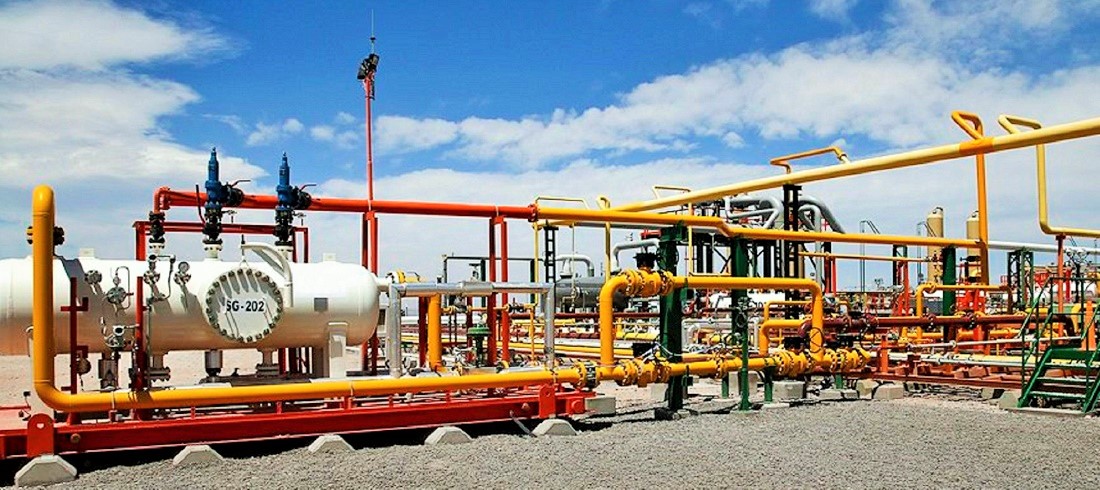
Argentina aims to halt gas imports and increase exports from Vaca Muerta bounty
Sep, 11, 2023 Posted by Gabriel MalheirosWeek 202337
Argentina’s government is putting a focus on stepping up exports of natural gas as production rises in Vaca Muerta, with the first goal to halt gas imports by 2024 or 2025 except at times of high winter demand, Energy Secretary Flavia Royon said Sept. 7.
The construction of new takeaway capacity from Vaca Muerta is fueling this export potential, she said at the El Cronista Energy Summit in Buenos Aires.
The President Néstor Kirchner Pipeline started operations in July at 11 million cu m/d, when the first section was completed from Vaca Muerta to the center of Buenos Aires province. The addition of compression plants will increase that to 22 million by October or November on the first section. The full capacity of 40 million cu m/d should be reached by the second half of 2024, months ahead of schedule, which along with the reversion of a northern pipeline to take Vaca Muerta gas from Patagonia to the north of the country will widen distribution of the shale gas in the country, Royon said.
“Argentina is not going to need to import LNG or gas from Bolivia” thanks to the additional takeaway capacity from Vaca Muerta, Royon said. “We are going to be self-supplied.”
The government has been spearheading the pipeline project to reduce imports of gas and liquid alternatives like diesel and fuel oil, which have been a main drain on international currency reserves in the cash-strapped country. The effort appears to be working. Argentina ran an energy deficit of $4.4 billion last year, which thanks to rising exports and dwindling imports should take it to a surplus of $100 million this year and $3.7 billion in 2024, Royon said.
Imports for peak demand
Royon said gas and liquid alternatives will still be imported during moments of peak demand in winter for heating, or when droughts deplete hydropower reserves. But these imports will not be routine, she added.
“Argentina is not going to need to make big purchases of LNG,” Royon said. “With these infrastructure projects underway, the substitution of imports is going to be a reality for Argentina.”
The driver of this is Vaca Muerta, one of the world’s biggest shale plays. The play, in development for only a decade, is producing 50% of the country’s 140 million cu m/d of gas, most of it in the province of Neuquén. The government of that province has estimated that its gas output, led by Vaca Muerta, will reach 140 million cu m/d in 2030, up from 91.4 million cu m/d in July. The national government has forecast that the country’s total gas production will reach 174 million cu m/d by 2030.
That will take gas output to above the 140 million annual average, but still shy of the 200 million cu m/d of peak winter demand.
Lining up exports
The growth potential is fueling the development of projects and legislation for exporting gas, initially over existing pipelines to Brazil, Chile and Uruguay, and then in its liquefied form to the global market.
“We see the possibility with Vaca Muerta to be able to think of something much more ambitious for Argentina, which will be [supplying gas] far beyond our domestic and regional markets,” Royon said “Argentina has an extraordinary opportunity with Vaca Muerta.”
Earlier this year, the government submitted a bill to Congress to providing tax breaks and other fiscal incentives to companies for building liquefaction capacity.
At least three projects are in the feasibility stage to build liquefaction terminals for exporting gas. The most advanced is a potential $10 billion project by Argentina’s state-backed YPF and Malaysia’s Petronas, which have reserved land for the project at the Port of Bahía Blanca in southern Buenos Aires province. The terminal would be fed by a new pipeline with some 90 million cu m/d of capacity to export more than 25 million mt/year of LNG, with the investment increasing to as much as $40 million.
Royon said Argentina is in a position to take advantage of the growing global demand for gas in the energy transition to net-zero carbon emissions by 2050.
“We have a window of opportunity for LNG,” she said. “Vaca Muerta has what is needed to be able take advantage of this.”
Source: Hellenic Shipping News with Platts information
Read more at: https://www.hellenicshippingnews.com/argentina-aims-to-halt-gas-imports-and-increase-exports-from-vaca-muerta-bounty/
-
Grains
Oct, 20, 2022
0
Brazil steals part of US soybean sales amid American harvest
-
Shipping
Jan, 21, 2020
0
Alphaliner says container shipping capacity to grow 3.5% this year
-
Ports and Terminals
Oct, 21, 2021
0
Companhia Docas do Ceará signs agreement with Argentina to move cargo through the Port of Mucuripe
-
Economy
Feb, 07, 2022
0
Trade balance has surplus of US$ 754.5 million in the 1st week of February


